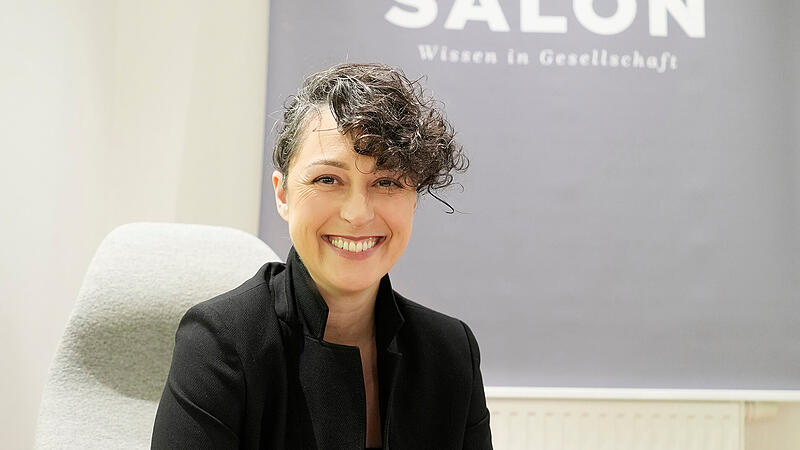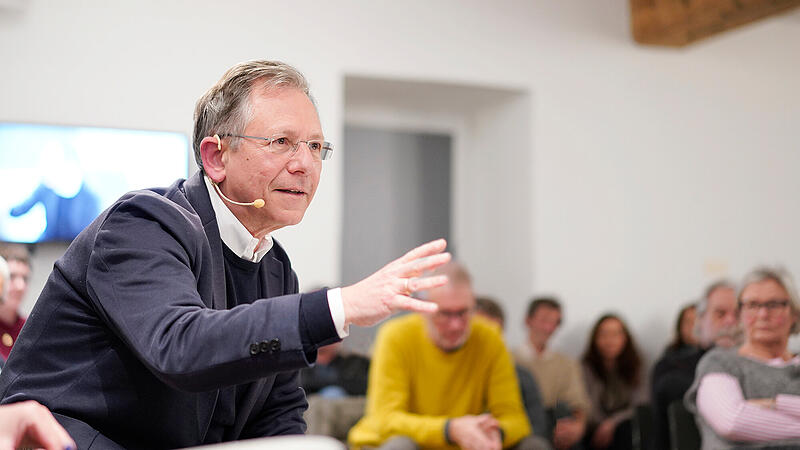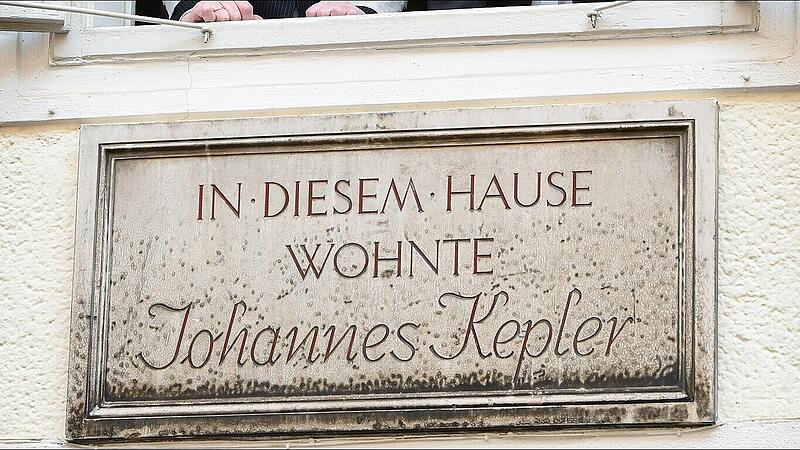Image: Reinhard Winkler, JKU

Image: reinhard winkler

Image: reinhard winkler
The program in Rathausgasse, in the middle of Linz’s old town, is as dense as it is varied in February. With the new director Cornelia Lehner The Kepler Salon wanted to create an “innovative and lively reorientation of the format” as a place for discussion and popular education, said the new rector of the Johannes Kepler University recently in an OÖN interview. After the “experimental pre-opening phase”, with historians and writers, among others Doron Rabinovici, the Kepler Salon gets off to a flying start in February. Here is an overview of the events taking place in February:
Why we need curiosity: These are difficult times – the current situation can be described in one way or another. Many people talk about the “polycrisis”. In the process, many people lose something valuable: the desire for the future and the necessary curiosity. Both are essential for social and economic innovation. But how do we cultivate curiosity? And how do we create positive images for the future that are worth getting involved in? The two innovative thinkers try to provide answers to these questions Katharina Ehrenmüller and Patrick Rammerstorfer at the lecture “The Curious Advantage – Why it’s worth being excited about the future” at the next Monday, February 5th, at 7:30 p.m.
The computer pioneer: Augusta Ada King-Noel, Countess of Lovelace, commonly known as Ada Lovelace, was a British mathematician and inventor (1815–1852). Almost 200 years ago, she developed the world’s first computer program and was the first person to realize what a computer would one day be able to do. Even as a young girl, she was enthusiastic about mathematics and even designed her own flying machine. Ada was a smart child who didn’t fit into the male-dominated world. An afternoon on Sunday, February 11th, for children ages 6 and up with cake, coffee and kamishibai – as a puppet theater told by Ali Mayer-Pernkopf. Starts at 3 p.m.

Image: reinhard winkler
Diversity in code: Digital transformation is omnipresent. Social media and artificial intelligence are changing our world and our values. Can or must we think about technical and economic progress together with equality and diversity? Thomas Gegenhuber from the Sustainable Transformation Management Lab at the Linz Institute for Transformative Change delivers on Monday, February 12th, at 7:30 p.m Clock impulses, how digital transformation can be made socially sustainable. His thesis: If we do not take social sustainability into account in the digital space, we as a society will lose out economically.
Tradition of clowns: One man’s joy, another man’s worst nightmare: The figure of the clown has been polarizing since the film adaptation of Steven King’s “It”. The tradition of the figure goes back historically to the court jester, who was able to criticize the king in a way for which others were hanged. In 1994, a group of clowns began visiting patients in hospitals in Linz. 30 years later, the CliniClowns are on the move all over Upper Austria. Their task of breaking up patients’ everyday hospital routine for a few minutes remains unchanged to this day. But how does a clown “play”? And is the red nose really the smallest mask in the world? The managing director of CliniClowns Upper Austria provides insights Uwe Marschner and the director, acting and clown teacher at Theater Malaria, Birgit Schwamberger artat the Monday, February 19th, at 7:30 p.m.

Image: reinhard winkler
The 15-hour week: In 1930, an essay by the British economist John Maynard Keynes that later became legendary was published. Under the title “Economic Possibilities for our Grandchildren”, Keynes predicted that in 2030 technical progress would open up the possibility of ensuring a high level of prosperity for everyone – and that while working no more than 15 hours per week. Why nothing has happened with the 15-hour week so far Sven Hartberger, long-time director of the Klangforum Wien, researched. He also brought his new book “Mallinger’s Farewell or On the Meaning and Nonsense of Work” with him. Host of the event on February 26th at 7:30 p.m is an OÖnews editor Klaus Buttinger. (fep)
My themes
For your saved topics were
new articles found.

info By clicking on the icon you can add the keyword to your topics.
info
By clicking on the icon you open your “my topics” page. They have of 15 keywords saved and would have to remove keywords.
info By clicking on the icon you can remove the keyword from your topics.
Add the topic to your topics.
Source: Nachrichten




